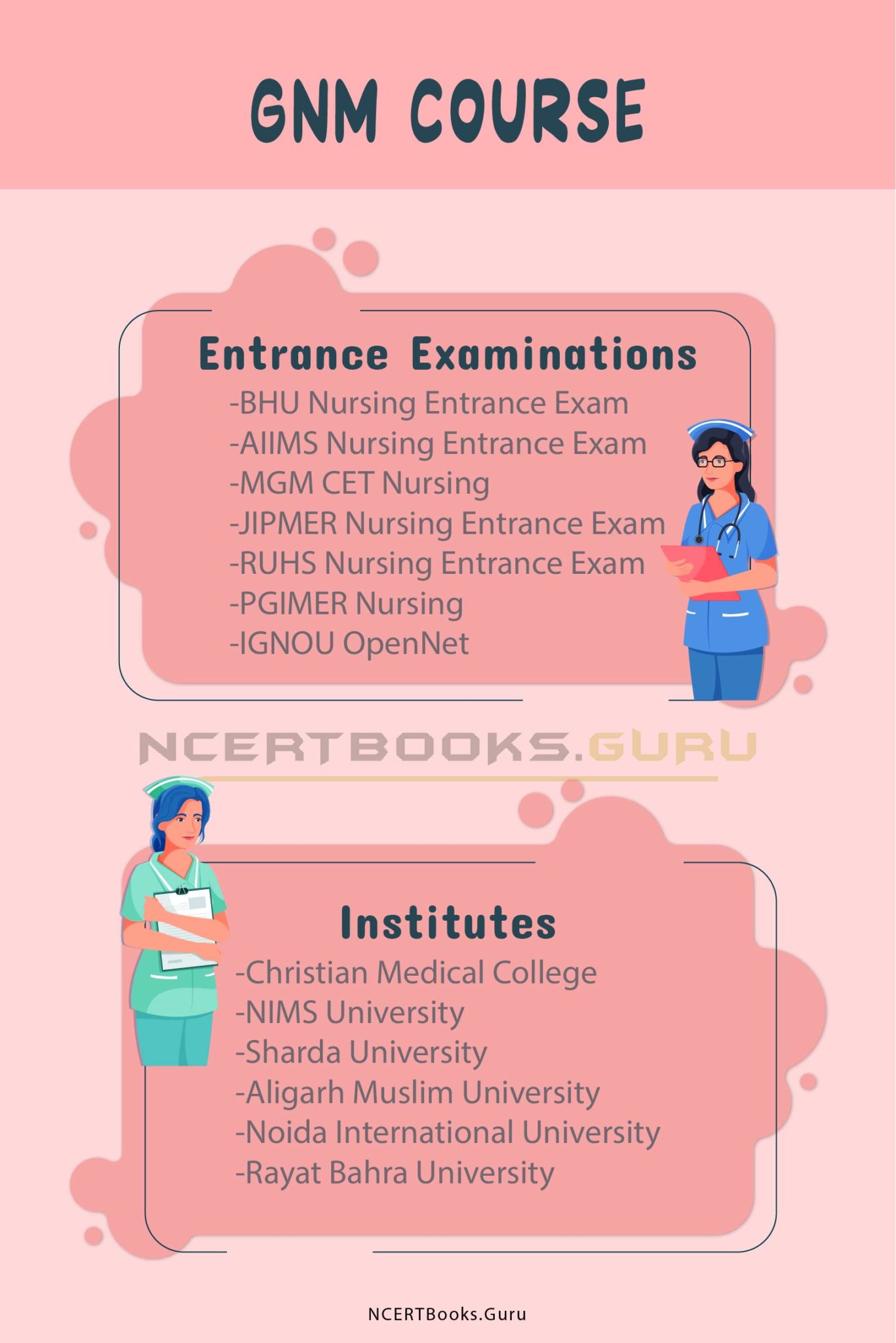Are you considering pursuing a career in nursing? If so, understanding the intricacies of GNM course fees is crucial to making an informed decision. GNM, or General Nursing and Midwifery, is a highly respected program that equips students with the skills and knowledge necessary to excel in the healthcare sector. While the course offers immense potential for personal and professional growth, the associated costs can vary significantly depending on factors such as the institution, location, and facilities provided. In this article, we will delve deep into the topic of GNM course fees, offering a comprehensive overview to help you navigate this important aspect of your educational journey.
Before diving into the specifics, it’s essential to recognize that the GNM course is not just an investment in education but also a stepping stone to a rewarding career. Nursing professionals are in high demand globally, and the GNM program serves as a gateway to this fulfilling profession. However, the fees for this course can be a concern for many aspiring students. By understanding the various components of GNM course fees and exploring available financial aid options, you can make a well-informed decision that aligns with your budget and career goals.
In the sections that follow, we will explore everything from the average GNM course fees across different regions to the factors influencing these costs. Additionally, we’ll address common questions such as "What are the hidden costs associated with GNM course fees?" and "How can I reduce my GNM course expenses?" By the end of this guide, you’ll have a clear understanding of the financial aspects of pursuing a GNM course and the opportunities it presents.
Read also:Download Hub4u Bengali Your Ultimate Guide To Accessing Bengali Content Online
Table of Contents
- What Are the Factors Influencing GNM Course Fees?
- How Do GNM Course Fees Vary Across Different Regions?
- What Are the Hidden Costs Associated with GNM Course Fees?
- Scholarships and Financial Aid for GNM Courses
- Is GNM Course Worth the Investment?
- How Can You Reduce Your GNM Course Expenses?
- Career Opportunities After Completing a GNM Course
- Frequently Asked Questions About GNM Course Fees
What Are the Factors Influencing GNM Course Fees?
When evaluating GNM course fees, it’s important to understand the various factors that contribute to the overall cost. These factors can vary significantly, making it essential to conduct thorough research before finalizing your decision. Below, we’ll explore the key elements that influence GNM course fees.
Type of Institution
One of the primary factors affecting GNM course fees is the type of institution offering the program. Government-run nursing colleges typically charge lower fees compared to private institutions. This is because government colleges receive subsidies and funding, allowing them to offer more affordable tuition rates. On the other hand, private nursing colleges often charge higher fees due to the advanced facilities and resources they provide. For instance, private institutions may offer state-of-the-art laboratories, experienced faculty, and additional support services, all of which contribute to the higher GNM course fees.
Location of the Institution
The geographic location of the institution also plays a significant role in determining GNM course fees. Institutions located in metropolitan cities or developed regions tend to have higher fees due to the increased cost of living and operational expenses. Conversely, nursing colleges in rural or semi-urban areas often offer more affordable tuition rates. For example, a GNM course in a city like Mumbai or Delhi may cost significantly more than one in a smaller city or town. Therefore, it’s worth considering the location when planning your education budget.
Additional Costs
Beyond tuition fees, there are several additional costs associated with GNM courses. These include expenses for uniforms, textbooks, clinical rotations, and examination fees. Some institutions may also charge for extracurricular activities, workshops, or certification programs. It’s essential to account for these costs when calculating the total GNM course fees to avoid unexpected financial burdens.
How Do GNM Course Fees Vary Across Different Regions?
The cost of pursuing a GNM course can vary significantly depending on the region or country where you choose to study. Understanding these regional differences can help you make a more informed decision about where to enroll. Let’s explore how GNM course fees differ across various regions.
GNM Course Fees in India
In India, GNM course fees are relatively affordable compared to many other countries. Government nursing colleges in India typically charge between INR 10,000 to INR 50,000 per year, while private institutions may charge anywhere from INR 50,000 to INR 2,00,000 annually. The variation in fees is influenced by factors such as the institution’s reputation, facilities, and location. For instance, prestigious nursing colleges in cities like Bangalore or Chennai may have higher fees due to their advanced infrastructure and placement opportunities.
Read also:Discover The Ultimate Guide To 4k S Download Your Gateway To Stunning Visuals
GNM Course Fees in Other Countries
In countries like the United States, the United Kingdom, or Australia, the cost of nursing programs, including GNM-equivalent courses, can be significantly higher. Tuition fees in these countries may range from $10,000 to $30,000 per year, depending on the institution and program duration. Additionally, international students may incur additional expenses such as visa fees, accommodation, and healthcare insurance. However, many of these countries offer scholarships and financial aid to help offset the high GNM course fees.
Regional Scholarships and Grants
To make GNM courses more accessible, many regions offer scholarships and grants to deserving students. For example, in India, government schemes like the Pradhan Mantri Swasthya Suraksha Yojana (PMSSY) provide financial assistance to students pursuing nursing education. Similarly, in the United States, organizations like the American Nurses Foundation offer scholarships to nursing students. Exploring these opportunities can help reduce the financial burden of GNM course fees.
What Are the Hidden Costs Associated with GNM Course Fees?
While tuition fees are a significant component of GNM course expenses, there are several hidden costs that students often overlook. Being aware of these additional expenses can help you plan your budget more effectively and avoid financial surprises.
Uniforms and Equipment
Nursing students are required to purchase uniforms, shoes, and other essential equipment such as stethoscopes and medical kits. These items can add up to a substantial amount, especially if the institution mandates specific brands or standards. On average, students may spend between INR 5,000 to INR 15,000 on uniforms and equipment during their GNM course.
Clinical Rotation Fees
Clinical rotations are a critical component of the GNM curriculum, providing students with hands-on experience in healthcare settings. However, some institutions charge additional fees for clinical rotations, which may include transportation, accommodation, and supervision costs. These fees can vary depending on the hospital or healthcare facility where the rotation takes place.
Examination and Certification Fees
Students are often required to pay separate fees for examinations, certifications, and licensing. These costs can range from INR 2,000 to INR 10,000, depending on the institution and certification body. It’s important to factor in these expenses when calculating the total GNM course fees.
Scholarships and Financial Aid for GNM Courses
For many students, the cost of GNM course fees can be a significant barrier to pursuing their education. Fortunately, there are numerous scholarships and financial aid options available to help alleviate this burden. Below, we’ll explore some of the most common avenues for financial assistance.
Government Scholarships
Government scholarships are one of the most reliable sources of financial aid for GNM students. In India, schemes like the National Scholarship Portal (NSP) and the Post Matric Scholarship for SC/ST students provide financial assistance to eligible candidates. These scholarships cover tuition fees, hostel expenses, and other related costs, making GNM courses more accessible to students from economically disadvantaged backgrounds.
Institutional Scholarships
Many nursing colleges and universities offer their own scholarships to meritorious students. These scholarships are often awarded based on academic performance, extracurricular achievements, or financial need. For example, some private institutions may offer merit-based scholarships that cover up to 50% of the GNM course fees. It’s advisable to check with your chosen institution for available scholarship opportunities.
External Grants and Loans
In addition to scholarships, students can explore external grants and education loans to fund their GNM courses. Banks and financial institutions offer education loans with flexible repayment options, allowing students to pay off their fees after completing their education. Additionally, organizations like the Indian Nursing Council (INC) and international bodies such as the World Health Organization (WHO) provide grants to support nursing education globally.
Is GNM Course Worth the Investment?
Given the costs associated with GNM course fees, it’s natural to question whether the investment is worthwhile. To answer this, let’s examine the potential benefits and long-term value of pursuing a GNM course.
High Demand for Nursing Professionals
Nursing is a profession with immense demand, both in India and globally. As healthcare systems continue to expand, the need for qualified nursing professionals is expected to grow. Graduates of GNM courses can find employment in hospitals, clinics, community health centers, and even international organizations. The job security and career growth opportunities make GNM courses a worthwhile investment.
Competitive Salaries
While the initial cost of GNM course fees may seem high, the potential earnings after graduation are quite competitive. Entry-level nursing positions in India typically offer salaries ranging from INR 2,00,000 to INR 4,00,000 per year. With experience and additional certifications, nurses can earn significantly higher salaries, often exceeding INR 6,00,000 annually. This makes the investment in GNM course fees financially rewarding in the long run.
Personal Fulfillment
Beyond financial benefits, a career in nursing offers immense personal fulfillment. Nurses play a crucial role in patient care, making a positive impact on people’s lives every day. The sense of purpose and satisfaction derived from this profession is invaluable and often outweighs the initial costs of GNM course fees.
How Can You Reduce Your GNM Course Expenses?
If you’re concerned about the cost of GNM course fees, there are several strategies you can employ to reduce your expenses. Below are some practical tips to help you manage your education budget more effectively.
Apply for Scholarships and Grants
As discussed earlier, scholarships and grants are excellent ways to reduce GNM course fees. Make sure to research and apply for as many scholarships as possible, both at the institutional and external levels. Additionally, explore government schemes and private organizations that offer financial aid to nursing students.
Choose Affordable Institutions
Opting for government nursing colleges or institutions in smaller cities can significantly reduce your GNM course fees. While private colleges may offer advanced facilities, government institutions provide quality education at a fraction of the cost. Consider your priorities and choose an institution that aligns with your budget and career goals.
Plan Your Expenses Wisely
Creating a detailed budget for your GNM course can help you manage your expenses more effectively. Include all potential costs, such as tuition fees, uniforms, textbooks, and clinical rotation fees. By planning ahead, you can avoid unnecessary expenses and ensure that you stay within your financial limits.
Career Opportunities After Completing a GNM Course
Completing a GNM course opens up a wide range of career opportunities in the healthcare sector. Graduates can explore various roles and specializations, each offering unique challenges and rewards. Let’s take a closer look at some of the most popular career paths for GNM graduates.
Hospital Nursing
One of the most common career paths for GNM graduates is hospital nursing. Nurses in hospitals work in various departments, including emergency care, pediatrics, and surgery. They play a vital role in patient care, assisting doctors and ensuring that patients receive


